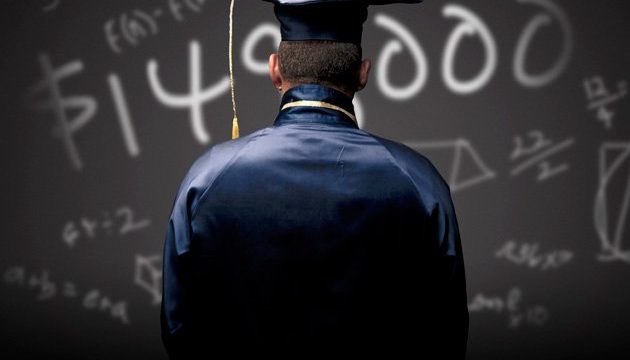Study: Subsidized, Government-Backed Student Loans Make College More Expensive

A new study indicates that government policy aimed at making higher education more affordable has actually made it more expensive. Given our federal government’s adventures in the home lending market, this shouldn’t surprise us.
Government-backed and subsidized home loans creating the housing bubble which collapsed in 2008/2009 with a serious impact on our national economy. This happened because the government, through various well-meaning social engineering policies, was pushing banks to make loans to people who wouldn’t normally qualify for them – those “subprime loans” you heard so much about. The result was inflated home prices, and a lot of people who really couldn’t afford the loans they got.
The same is happening in the world of education. By way of the same political thinking that had us backing policies which sought to make better citizens by turning them into homeowners, we have pushed higher education as a way to make better citizens by turning them into college graduates, and we’ve done it by pushing government-backed, subsidize student loans.
But much like with the subprime loan bubble, all this has done is inflate the cost of higher education while saddling students with debt, many of whom are ill-prepared to pay for it.
Here’s the trend line on the cost of higher education, compared to other life expenses like medical care. As you can see, one of these things is not like the others:
Now, via a study from the New York Federal Reserve, here’s the explanation for how this could be happening:
We find that institutions more exposed to changes in the subsidized federal loan program increased their tuition disproportionately around these policy changes, with a sizable pass-through effect on tuition of about 65 percent. We also find that Pell Grant aid and the unsubsidized federal loan program have pass-through effects on tuition, although these are economically and statistically not as strong.
In normal markets not distorted by government policy there is a natural sort of cap on how high prices can go. Consumers are generally rational, and if you set your price beyond what they can afford or beyond what they perceive as the value of what you’re selling, you’re going to price yourself out of the marketplace. But colleges haven’t priced themselves out of the market because the government has created a mirage of affordability with low-interest, government-subsidized student loans that are essentially an entitlement for anyone who wants to go to college.
Couple that with an unfortunate but widely held belief in America that every high school graduate should get a college degree, and you’ve got a recipe for a higher education bubble.
It has all been very good for the universities. After all, they get their money up front, and care very little about whether or not the students ever repay their taxpayer-backed student loans. Graduations rates are abysmal – nationally the six year graduation rate for a four year degree at both public and private institutions is about 59 percent – and a big part of the reason is that the universities really don’t have any good reason to ensure students finish.
There is also little incentive for universities to ensure that the students are getting value for their education, which is why this is happening:
The cost of higher education is up, student loan debt is up, but the earning power of college graduates is down.
The defenders of academia will tell us that higher education isn’t just about a career, and while there’s some truth in that, it’s worth remembering that the universities themselves sell higher education as a path to increased lifetime earnings when they’re trying to justify all the expense and debt students must accumulate to attend.
Again, all roads lead back to government policy subsidizing student loans. That policy is supposed to make higher education more affordable, but instead it has accelerated the cost while make a college degree less valuable.
We’d be better off not subsidizing higher education at all.






